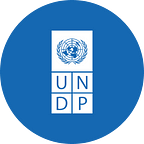Physical distancing and social connectedness- what role might community resilience play in managing the COVID-19 pandemic
By Millie Begovic, global innovation adviser UNDP and Francesca Nardini, partnership adviser at UNDP’s Regional Bureau for Latin America and the Caribbean (and public health master’s program candidate at the London School of Hygiene & Tropic Medicine)
Some communities are destroyed by disasters, while others bounce back stronger. Whether it is a fast- (flash flood, tsunami) or slow-onset (COVID-19), what makes a difference in communities springing back faster from the shocks?
This is the question at the heart of Daniel Aldrich’s work. His analysis of 130 coastal cities struck by the 60 foot tsunami in Japan (the basis for his ‘Black Wave: How Networks and Governance Shaped Japan’s 3/11 Disasters’) showed that it was social, not physical infrastructure that kept communities intact (a finding that is consistent across a range of his research, from role of social ties in evacuations from Hurricane Irma in Miami to response to the Mexico and Haiti earthquakes, to name a few).
Case after case, communities with stronger social connections and more trust before the disaster were able to activate those networks in responding to the shocks and, as one of the critical outcomes, had much less of its population killed than those communities that were less connected.
It is difficult to compare a pandemic with a tsunami — unless we abstract some principles. Epidemiological studies associate social isolation with heart disease, cancer, depression, diabetes and suicides — framing loneliness as a health epidemic. Citizens who feel the biggest burden of the social disconnection are often those living in poverty, with most fragile and unstable ties.
When we add Daniel’s work on the role of social ties to the existing context of vulnerability — the age and underlying health conditions seem to correlate with higher mortality rates in case of COVID-19 — what role might social capital play in building resilience within the at-risk groups? There is already research that links the ongoing policies of quarantine with the PTSD symptoms that have long lasting implications (validating Daniel’s research on the effects of long term shut-ins after Fukushima nuclear melt down driven by anxiety of radioactive contamination).
With the threat of protracted global recession looming large, uncertainty over the future course of the pandemic and growing anxiety globally, others point to emergence of corrosive communities driven by the breakdown of trust in authority figures and (formerly?) trusted institutions. Emerging instances of xenophobia and straight up racism (cases of aggression against people of Asian descent) further erode social capital, on top of the already large extent of human suffering and overwhelmed public health systems in all except a hand full of countries. Is David Brooks onto something in saying that pandemics really kill compassion, or are there pathways that take us down the road of reimagining our civilization and putting an eco(system) ahead of ego (to quote Otto Scharmer)?
While recognizing that there is no silver bullet to deal with the pandemic and its implications, how do cities and countries maintain social connectedness that nurtures resilience and ability to communities to persevere in the face of the crisis in the context where physical distancing is one of the critical measures of managing the spread? How do we balance strict safety and security efforts with measures that build trust, social accountability, and peer to peer support? Bracing for the weeks of potential travel restrictions, closure of gathering places, full on border shutdowns and flight bans, what measures can we put in place to deal with the isolation, lack of access to information and resources, emotional and physical support? What can we at UNDP do to maintain connectedness, build and nurture social capital while shifting to largely remote work and telecommuting?
On Tuesday, March 24th at 10am Boston/5pm Istanbul Daniel Aldrich joined us on the Innovation Conversation to discuss these and other questions looking at building and nurturing resilience of communities in face of the unprecedented crisis. For a recording of the chat head on over to our UNDP Innovation YouTube channel.
Daniel P. Aldrich is professor and director of the Security & Resilience Program at Northeastern Uni. He has published 5 books, including Building Resilience & Black Wave, more than 55 peer-reviewed articles, and written op-eds for the NY Times, CNN, HuffPost. He has spent more than 5 years in India, Japan, and Africa carrying out fieldwork and his work has been funded by the Fulbright Foundation, the Abe Foundation, and the Japan Foundation, among other institutions.
